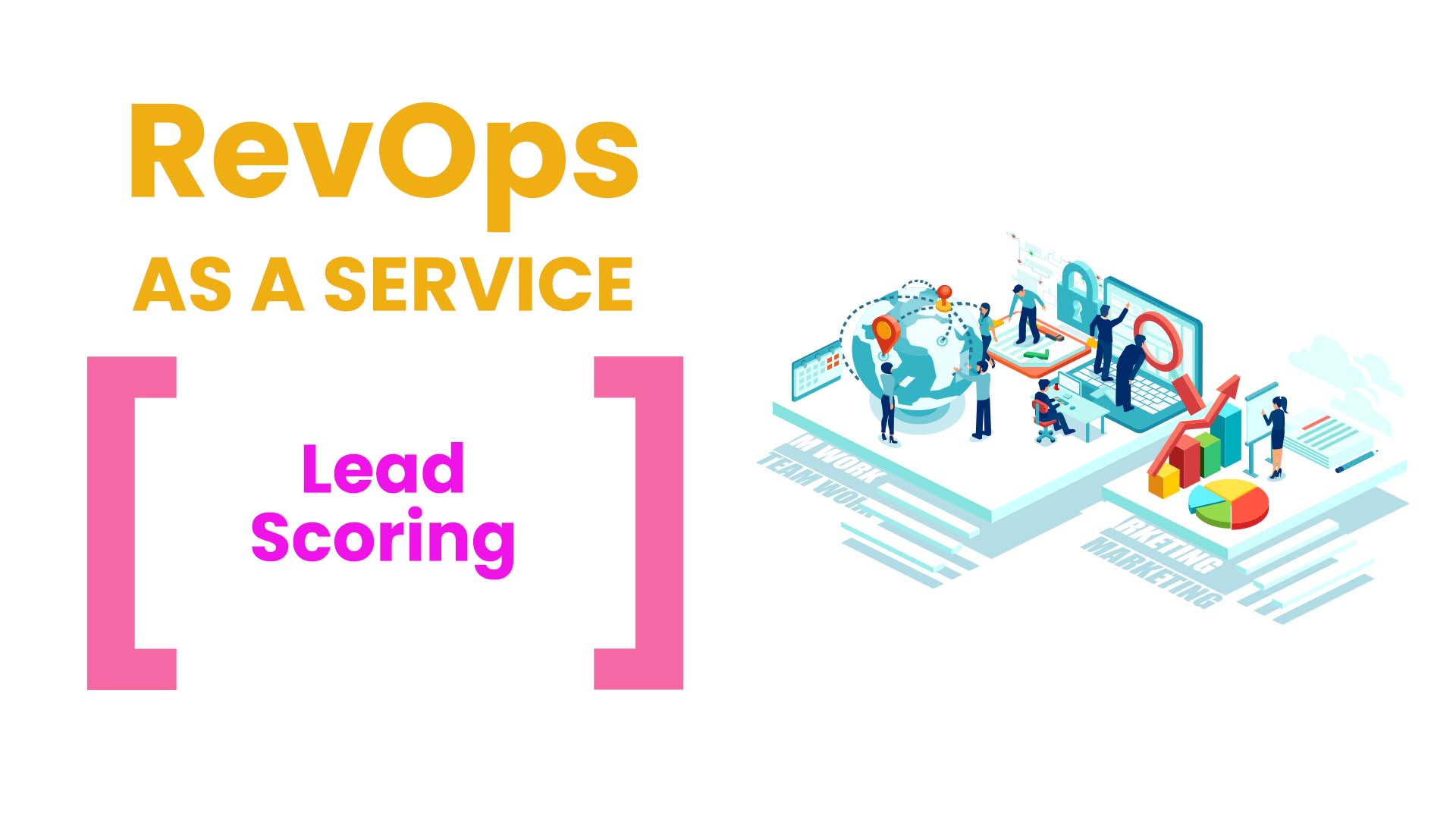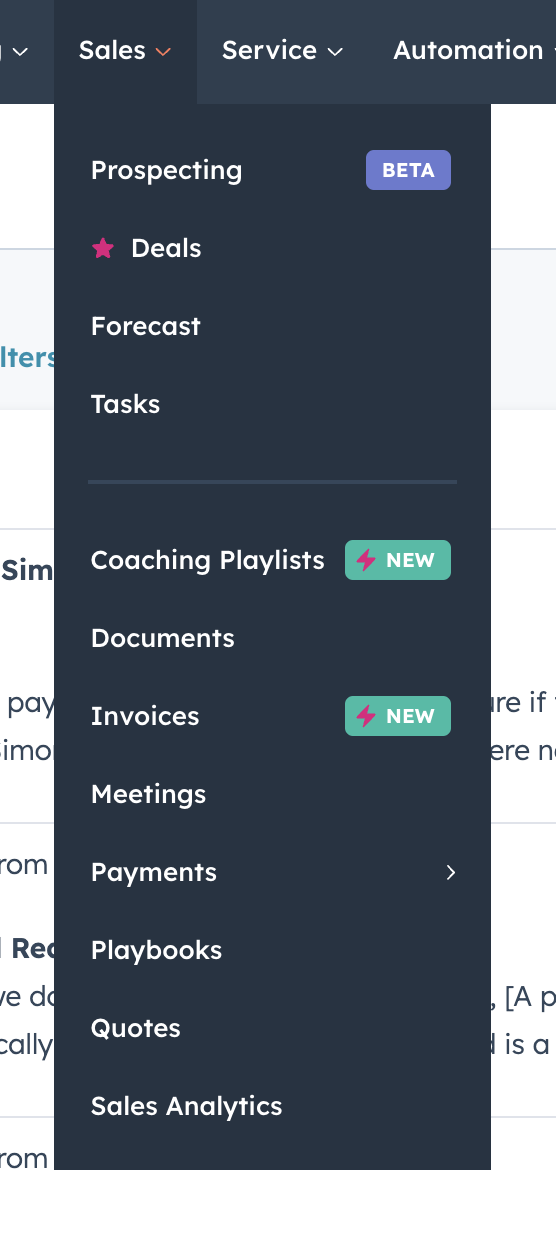Are you tired of sifting through countless leads, only to find a small handful of promising ones? Do you wish there was a way to streamline your lead qualification process and focus your efforts on the leads that are most likely to convert? Look no further than RevOps as a Service and its powerful lead-scoring capabilities. Let’s explore the ins and outs of lead scoring and how RevOps as a Service can help you prioritise your leads, improve your sales efficiency, and ultimately drive revenue growth for your business. Let's dive in!
RevOps as a Service? What’s That?
Revenue operations, or "RevOps" for short, is not a new concept. Businesses have been implementing revenue-focused practices for ages, albeit under different names. What's new, however, is the emergence of RevOps as a service - a game-changing solution that offers companies the expertise and support they need to optimise their revenue streams.
To illustrate the benefits of RevOps as a service, let's consider a common household problem: a malfunctioning washing machine. When faced with this issue, most people don't have the technical knowledge or time to troubleshoot the problem themselves. Instead, they turn to an expert who can quickly diagnose and repair the issue. Attempting to fix the unit on their own could result in wasted time and money, not to mention potential damage to the appliance.
To be more precise, RevOps as a service involves outsourcing analytics, tech stack alignments, and lead and demand generation processes to a company with expertise in optimising a business's customer-focused activities. This approach provides several benefits, including streamlined processes, cost savings, and increased revenue growth, much like a reliable washing machine repair service provides a dependable solution to a complex problem.
RevOps as a Service: Lead Scoring
When a team of RevOps experts takes charge of your revenue processes, they may analyse various areas to map out your strategies. One such area is lead scoring. Let's delve into lead scoring and explore how a team of RevOps professionals may approach it.
Lead Scoring - What is it?
Lead scoring is a model of assigning value to leads to identify the most promising prospects for your current sales funnel. In a way, it's like dating: just as you can use information about a potential partner to decide whether it's worth pursuing a relationship, businesses use the information to determine which leads are most likely to convert into paying customers. By assigning a score to each lead based on factors such as demographics, behavior, and engagement, businesses can focus their resources on the most valuable leads and maximise their chances of success.
Just as individuals use the information to assess whether pursuing a relationship is worth their time, businesses use lead scoring to assign value to leads and identify the most promising prospects for their sales funnel. The goal is to focus on leads that are most likely to convert into paying customers and avoid wasting resources on poor matches. However, many businesses struggle with accurately scoring and identifying these leads due to a lack of expertise and testing practices. This is where RevOps as a service can be invaluable. By entrusting lead scoring to a team of experts, businesses can pursue the most beneficial leads and optimise their sales funnel for maximum success.
Why Is It Important?
There are a few things that businesses need to be successful, including ample funding, a plethora of great employees, and a stroke of luck. However, the one resource that cannot be replenished is time. Unlike money, employees, and luck, lost time cannot be regained. Therefore, it is crucial to use time wisely, and wasted time is the most significant loss a business can suffer. To avoid wasting time, it is vital to focus on opportunities that offer the best chance of success while avoiding scenarios that inevitably lead to failure. By ceasing to pursue leads that do not align with your product or service, you can prevent wasting time.
Lead scoring is a valuable tool that can help businesses prioritise their outreach efforts, optimise their sales resources, and effectively hand off marketing leads to the sales team. By assigning a value to each lead based on a set of criteria, businesses can quickly determine which leads are most likely to convert into paying customers and prioritise their sales efforts accordingly.
In addition to prioritising outreach, lead scoring can also help businesses optimise their sales resources by ensuring that their sales team is spending their time and energy on the leads that are most likely to result in sales. By focusing on the most valuable leads, sales reps can maximise their productivity and close deals more efficiently, ultimately driving revenue growth for the business.
Another key benefit of lead scoring is that it helps describe the handoff between marketing and sales. By setting clear criteria for what makes a lead "sales-ready," marketing teams can ensure that they are passing on only the most qualified leads to the sales team. This helps prevent wasted effort on both sides, as sales reps aren't wasting time on unqualified leads, and marketing teams can focus their efforts on generating high-quality leads that are more likely to convert into sales.
Lead Scoring Threshold
Lead scoring is a joint effort between sales and marketing teams and not a standalone marketing strategy. Sales team involvement is essential to ensure accurate evaluation of leads based on their readiness to purchase. When the lead score threshold is met, the hand-off occurs between sales and marketing teams, signifying that the prospect is now deemed sales-ready and becomes a marketing-qualified lead (MQL). The sales team takes over from there to close the deal.
Determining if a prospect is sales-ready is done through point attribution, where prospects earn or lose points based on various actions such as opening an email, job title, attending a webinar, and more.
For some companies, point attribution can be challenging especially if their tracking systems have blind spots or biases. This is where using RevOps as a service can be beneficial as it can help optimise the lead-scoring process. By turning revenue functions like lead scoring over to specialists, businesses can save on employee time and experience a well developed scoring system that accurately evaluates leads based on relevant criteria.
With a well developed scoring system in place, businesses can better identify and prioritise leads that are most likely to result in a sale, ultimately improving their conversion rates. Instead of wondering how lead scoring works, businesses can see firsthand how it works for them, leading to increased efficiency and profitability.
Guidelines
To fully leverage the power of lead scoring in HubSpot, the RevOps team typically follows a set of guidelines that shape their decision-making process. Below are some examples, along with descriptions of each:
- Positive & Negative: It's important to consider both positive and negative actions that leaders take when scoring them. This means that leads should be able to move forward or backward in the scoring process depending on their behavior.
- Lifecycle Stage is key: Robust Lifecycle Stages are a must-have for accurate lead scoring. Without them, it's difficult to know where leads are in the buying process and how to effectively engage with them.
- Right-sized bucket: To ensure that lead qualification is meaningful, only the top 20-30% of leads should qualify. If everyone qualifies, the process loses its effectiveness.
- Attributes before trigger: Instead of allowing trigger scores to dictate lead scoring, it's better to let lead attributes guide the trigger score. This ensures that the score reflects the true value of the lead.
- Decrease stale leads: It's important to boost the score for recent behaviors, but it's also necessary to decrease the score for stale leads after a certain period. This helps to keep the scoring system accurate and relevant over time.
What results to expect
When implemented correctly, lead scoring can provide numerous benefits for your business. The most notable result you can expect is the ability to prioritise your most qualified leads, enabling your team to focus their efforts on those prospects that are most likely to convert into paying customers. This can help to optimise your sales resources, increase conversion rates, and ultimately boost revenue.
In addition to identifying the top 20-30% of qualified leads, implementing lead scoring can also streamline the qualification process. With fit and behavior scores consolidated into a single property, leads within your HubSpot platform can automatically qualify themselves based on their interactions with your website, email campaigns, and other marketing efforts. This can help to save time and resources by automating the lead qualification process, allowing your team to focus on more strategic tasks.
Another benefit of lead scoring is the automation of the lead-to-MQL lifecycle stage qualification process. By automating this process, you can ensure that leads are being moved through the sales funnel at the appropriate time, without the need for manual intervention. This can help to reduce the risk of leads falling through the cracks and ensure that your sales team is always working with the most up-to-date information.
Finally, lead scoring can also help to automate and standardise the marketing-to-sales handoff process. This means that when a lead reaches the designated lead score threshold, it will automatically be classified as an MQL and passed on to the sales team for follow-up. This can help to reduce the risk of miscommunication or delays in the handoff process and ensure that the sales team is receiving high-quality leads that are ready to make a purchase.
Trust Real Inbound for the service
Want to focus your efforts on the most promising leads? Let our RevOps team help you design a customised lead-scoring process. Contact us now.






